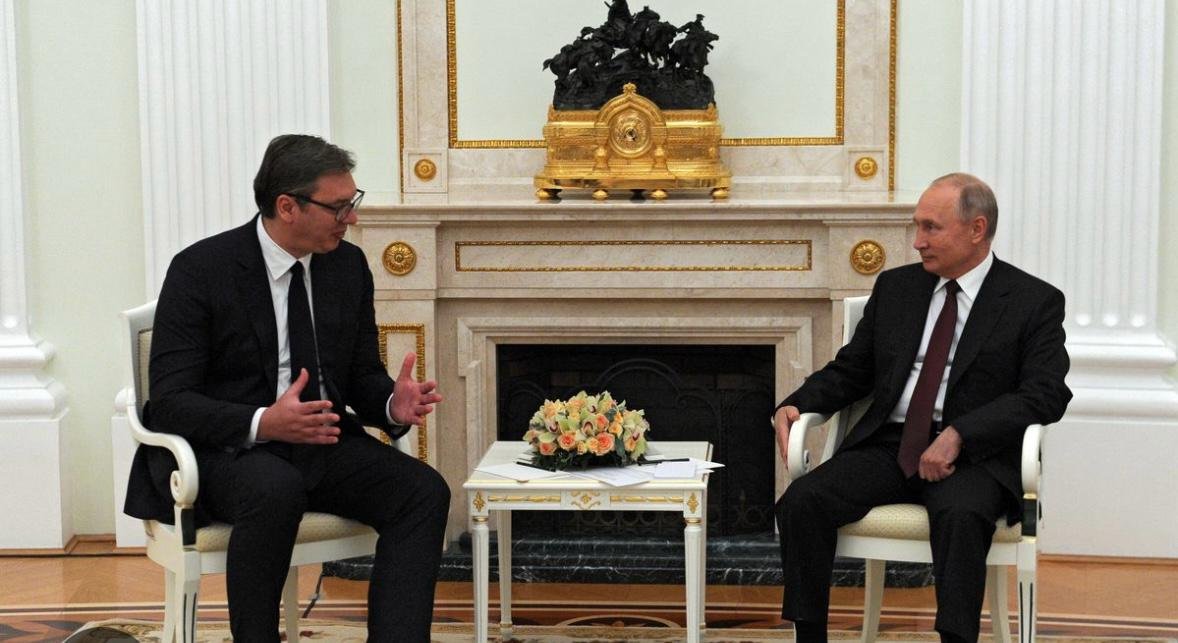The axes of dictatorship continue to cast a dark shadow over the democratic world. Ignoring these acts strengthens these dictatorships, making them a serious threat to the entire world. Serbia, as one of the main contributors to this, is becoming the Kremlin’s bomb fuse ready to explode within the West.
By: Agim Musliu – Director at the Institute for Hybrid Warfare Studies “OCTOPUS”
Nicolas Maduro won the elections in Venezuela, and immediately after the results were announced, Russian President Vladimir Putin was among the first to congratulate him. Following him, Serbian President Aleksandar Vučić also congratulated dictator Maduro on his disputed victory.

During Nicolas Maduro’s leadership, young girls were forced into prostitution to secure food. A country rich in natural resources has been reduced to extreme poverty, worse than some African countries. Currently, 94% of Venezuela’s population lives in poverty, while 74% are in extreme poverty, unable to secure regular food supplies. Approximately 300,000 Venezuelan women during Maduro’s rule have been forced to work as prostitutes on the border with Colombia to provide food for themselves and their families. Despite also being a poor country, Colombia is less impoverished than Venezuela.
Through hybrid warfare, Russia strategically pushed Venezuela towards isolation, supporting the political dictatorship there, which continues after Maduro’s victory. The main reason Venezuela is controlled by Russia and remains isolated with a corrupt political order is to ensure that this oil-rich country does not enter the international oil market. This allows Russia to sell oil to a country that has abundant reserves of this precious liquid, economically benefiting from Venezuela’s dictatorial situation.
This deceitful Venezuelan government, which controls and steals wealth for a handful of people, also offers Russia a strategic position as an ally in Latin America, showing that modern autocracies and dictatorships sponsored by Russia are even worse than Hitler’s Nazism.
Putin desires the same situation in the Balkans and aims to push this strategy at any cost through its proxy Serbia and its subordinate Aleksandar Vučić. The destruction of democracy, the prohibit of EU integration, the sabotage of NATO, the control of human and capital resources, the strategic positioning, and the elimination of ethnic groups considered hostile, such as the Albanians, are all part of this plan.

Surprisingly, the interest in lithium is strengthening Russia’s and Serbia’s strategy, and the West is neglecting this alarm to the extent that it could be too late to react, just like with Hitler in World War II.
Vučić’s congratulations to Maduro on his “victory” will seemingly pass unnoticed again by Westerners?
Vučić does not congratulate anyone in vain; hence, his congratulations to Maduro draw attention once again to Serbia’s strategic involvement in the Kremlin’s Euro-Asian plans and Vučić’s essential contribution to implementing these plans.
How is it possible for the West to allow Serbia to openly sabotage democracy globally, undermine Western security strategy, contribute to Kremlin’s plans, and continue to pose a serious threat to the Western Balkans?
Perhaps no one in the EU knows the answer to this question, or it is neglected due to the shortsightedness of developmental agendas created many years ago that have not been updated to respond to current threats.
We must remember that just like in Venezuela, Vučić and his group manipulated the elections in Serbia. Despite criticisms from international reports such as those from OSCE-ODIHR and other organizations, the West turned a blind eye and accepted these elections as legitimate.

Cooperation with Vučić is the same as with Putin; even cloning these two would not create a closer political and strategic relationship.
NATO and the EU must seriously reconsider their forms of cooperation with Serbia before it is too late. Preserving democracy, freedom, and human development today is no longer an isolated issue but an open issue of global influences.
(CC BY-NC 4.0) This article is licensed to you under a Creative Commons Attribution 4.0 International License. When you copy and redistribute this paper in full or in part, you need to provide proper attribution to it to ensure that others can later locate this work (and to ensure that others do not accuse you of plagiarism).

